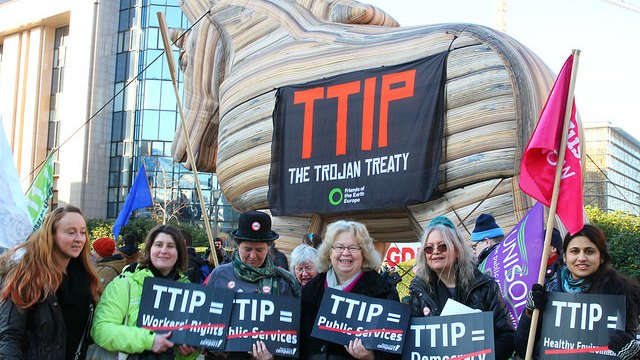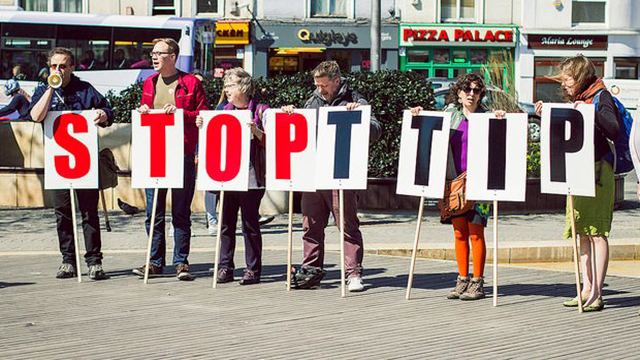The new global free trade deals could threaten food safety and local agriculture.

Over the last few years, a series of controversial free trade deals have been negotiated around the world. While most people might think that free trade is beneficial for a country’s economic development, these new agreements contains clauses that might harm certain sectors of business, society and even the environment.
To raise awareness about its possible negative impact, local organisation Cardiff People and Planet Society is organising a workshop on 5 March, at Cathays Community Centre.
The most high profile deal in Europe is the secretive Transatlantic Trade and Investment Partnership (TTIP), negotiated since 2013 between the European Union and the United States. Its content has only been known through leaked information and Freedom of Information Act requests. The deal is criticised by various communities and organisations around the the EU because it might cause factory job losses, weaker financial regulations and even worse food safety standards.
Barbora Adlerova, from People and Planet Society, hopes that Cardiff’s Free Trade Deals workshop would make people more aware of the problem.
“It just seems so significant but people do not know about it much. We thought that one of the things we could do, on a smaller scale and more informal (way) is to raise awareness and educate ourselves about its (free trade) historical context.”

Guy Taylor from Global Justice Now, an organisation that has lead the fight against free trade deals in the UK, said that raising awareness has been difficult because TTIP and the other deals are “very boring” and have “thousands of pages of legal text which is impenetrable to untrained people”.
But he thinks that people should really take notice because the impacts of TTIP will have drastic effects on their lives.
“In their move to get rid of red tape and harmonise regulations, there will be an opening in the market for many things we have considered unsafe in the EU. We operate here on the precautionary principle, the idea that unless you prove something to be safe you cannot market it in the EU. On the other side of the Atlantic they have the ‘scientific’ principle – which means you can market things unless they are proven to be unsafe. There is a big difference between these two concepts and TTIP is an attempt to equalise the regulatory systems to make goods made in either the US or EU saleable in the other market without having to satisfy a second safety standard. ”
For instance, a mascara bought in the US was found to contain a chemical which is only available in wart removers in the EU.
”I’m not sure if negotiators will be able to find a balanced position which keeps people happy on both sides of the Atlantic, but they are going to try!” Taylor added.
He also disagrees with the creation of Investor-State Dispute Settlements, which means that companies would be able to sue the board of government or local authorities if they thought the profits were being affected by new laws.
“This is a threat to tax payers money. In times of austerity, when cuts are hurting people throughout the UK, the idea of a corporation suing the government for cancelling a fracking contract or introducing a public health measure that damages sales of a fizzy sugary drink or cigarettes is an outrage.”
Meanwhile, Welsh Labour AM Jenny Rathbone is particularly concerned about food security issues. “We do not want more processed food to be sold to our population. We saw what happened in Mexico with the North American Free Trade Agreement. The indigenous agriculture was wiped out to a large extent by cheap, subsidised food from the US being dumped there. That was a lot of tragedy and it undermined local food market and economy.”
Ms. Rathbone and Emilie Schultze, Campaign Coordinator for Students Against TTIP, would be speaking at the event. Rathbone would talk about the potential danger of the new free trade deals while Schultze would provide an overview of its historical context. Members of People and Planet Society would then conduct three separate workshops on the free trade’s impact on food and the environment, labour, and health.
The event will coincide with the Trade Union Bill protest at the National Museum, but people are encouraged to pop in anytime to attend the workshops. Free dinner and fair trade coffee and tea would also be provided.
